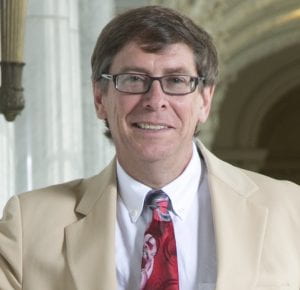 In two separate opinions today, the U.S. Supreme Court solidified its authority as a co-equal and powerful branch of our constitutional government. The Court rejected President Trump’s arguments for immunity from state grand jury, as well as congressional subpoena demands for documents. Although neither opinion directs an immediate release of documents—both remand the cases for further proceedings—they represent an important triumph for the rule of law. Moreover, as the author of both opinions, Chief Justice John Roberts has really established himself as an “institutionalist” and non-political leader of the Court. Overall, the Court again “dodged a bullet”; decisions going the other way would have endorsed an imperial presidency that no one really wants.
In two separate opinions today, the U.S. Supreme Court solidified its authority as a co-equal and powerful branch of our constitutional government. The Court rejected President Trump’s arguments for immunity from state grand jury, as well as congressional subpoena demands for documents. Although neither opinion directs an immediate release of documents—both remand the cases for further proceedings—they represent an important triumph for the rule of law. Moreover, as the author of both opinions, Chief Justice John Roberts has really established himself as an “institutionalist” and non-political leader of the Court. Overall, the Court again “dodged a bullet”; decisions going the other way would have endorsed an imperial presidency that no one really wants.
Both opinions addressed subpoenas directed at third-party record-holders, for documents they possess that are related to the president. In Vance, a grand jury acting on behalf of the District Attorney for New York County (Manhattan) issued criminal investigation subpoenas to a private accounting firm for financial records (including tax returns) related to Donald Trump before he became president. In rejecting—unanimously—the president’s claims of absolute immunity, the chief justice began by noting that “the public has a right to every man’s evidence,” and reciting that in 1807 Chief Justice John Marshall enforced a criminal records subpoena against President Thomas Jefferson. Similar Supreme Court enforcement of judicially supervised subpoenas continued against presidents Nixon and Clinton. The chief justice’s opinion concludes: “no citizen, not even the president, is categorically above the common duty to produce evidence when called upon in a criminal proceeding.”
Similarly in today’s Mazars decision, committees in the House of Representatives issued “legislative subpoenas” to three private businesses for financial records related to Trump. Again, the president’s lawyers argued that the president should be immune from such “attacks” from the legislative branch. And, again, Chief Justice Roberts wrote an opinion firmly rejecting that claim. It is true that “significant separation of powers issues” are raised by subpoenas from a competing constitutional branch; courts asked to enforce such subpoenas must take special care to consider them. The Court sets out four “special considerations” that courts should apply and notes that “[o]ther considerations may be pertinent as well; one case every two centuries does not afford enough experience for an exhaustive list.” Nevertheless, valid congressional subpoenas can be enforced against the president: “When Congress seeks information ‘needed for intelligent legislative action,’ it ‘unquestionably’ remains ‘the duty of all citizens to cooperate’” (emphasis in original). Thus this case, as well as Vance, is “remanded for further proceedings consistent with” the Court’s opinions.
There is much more to be said about the details of today’s presidential subpoenas decisions, and it is sure to be said, and “spun,” in future days. There will be lower court opinions, appeals, and quite possibly more Supreme Court litigation. We will not see the president’s tax records anytime soon (unless he were persuaded to voluntarily release them—an understatement of reality I think). Still, the Court today, and Chief Justice Robert personally, stood firm as protectors of our constitutional values. That is something we can all be proud of.
Thus it is quite significant that although justices Clarence Thomas and Samuel Alito filed opinions labeled “dissents” in both cases—and justices Brett Kavanaugh and Neil Gorsuch said they were concurring only “in the judgment” in Vance (they joined the majority entirely in Mazars)—the gaps between the justices’ views were, as the chief justice noted, “not as great as that label might suggest.” In Vance, the justices unanimously agreed that the president is not immune from a state grand jury subpoena; and in Mazars the Court’s vote was 7-2 to say that valid legislative subpoenas can be enforced against the president. Justice Kavanaugh’s concurrence in Vance (joined by Justice Gorsuch) expressly notes that “no one is above the law. That principle applies, of course, to a president.” It is an important day in constitutional history when this principle is unanimously endorsed by our judicial branch and spoken out loud by the two justices appointed by President Trump. Justice Kavanaugh is also surely correct that “much may depend on how the majority opinion’s various standards are applied” and that further slow-paced litigation is guaranteed. Nevertheless, the most significant takeaway from today’s opinions is that “the rule of law,” and not politics, prevailed.
Rory Little is the Joseph W. Cotchett Jr. Professor of Law at UC Hastings, where he has taught full-time since 1994. He clerked at the U.S. Supreme Court in 1984-85, and recently published an article remembering that term (88 G.W.U. L. Rev. Arguendo 101 (2020)). Among many external projects, he has served as an Associate Deputy Attorney General in the U.S. Department of Justice; as capital case counsel for Mr. Brandon Jones in Georgia; and as reporter to the ABA task force to revise the Criminal Justice Standards for Prosecution and Defense. He is a co-author of a Criminal law casebook and he comments regularly on criminal and constitutional law issues for national media outlets.
